Daïnah la métisse/Dinah the Black Girl (1932) - Grémillon
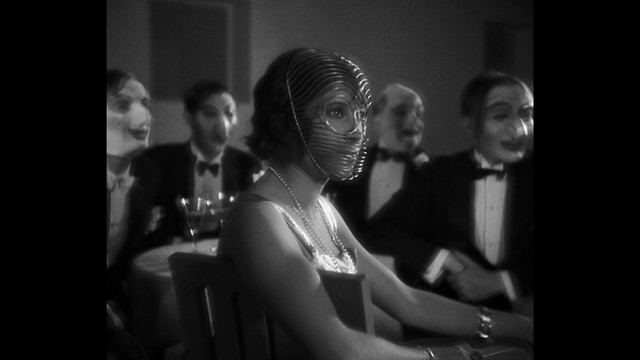 A murder and racial/class politics in an ocean liner headed to New Caledonia in the South Pacific. Starring stunning Laurence Clavius as a temptress at sea who yearns to be free. Restored from a nitrate negative by Gaumont Pathé Archives in 2018.
A murder and racial/class politics in an ocean liner headed to New Caledonia in the South Pacific. Starring stunning Laurence Clavius as a temptress at sea who yearns to be free. Restored from a nitrate negative by Gaumont Pathé Archives in 2018.
Une femme mariée/A Married Woman (1964) - Godard
 Godard's take on women being objectified in the consumerist 60s is on full display here. Also the talk of holocaust hangs like a cloud. Charlotte doesn't know what Auschwitz is as the men talk about it on the way back from the nazi trials in Hamburg. Biting and provocative.
Godard's take on women being objectified in the consumerist 60s is on full display here. Also the talk of holocaust hangs like a cloud. Charlotte doesn't know what Auschwitz is as the men talk about it on the way back from the nazi trials in Hamburg. Biting and provocative.
The Housemaid (1960) - Kim
 s it the puffy tail that makes all the difference between a rat and a squirrel? You might have achieved the goal of becoming petit-bourgeoisie by having a pet squirrel, but you will always have rat poison hidden away in the cupboard. The Housemaid pokes at these conundrums of living in a rapidly developing capitalist society.
s it the puffy tail that makes all the difference between a rat and a squirrel? You might have achieved the goal of becoming petit-bourgeoisie by having a pet squirrel, but you will always have rat poison hidden away in the cupboard. The Housemaid pokes at these conundrums of living in a rapidly developing capitalist society.
Leben - BRD/How to Live in FRG (1990) - Farocki
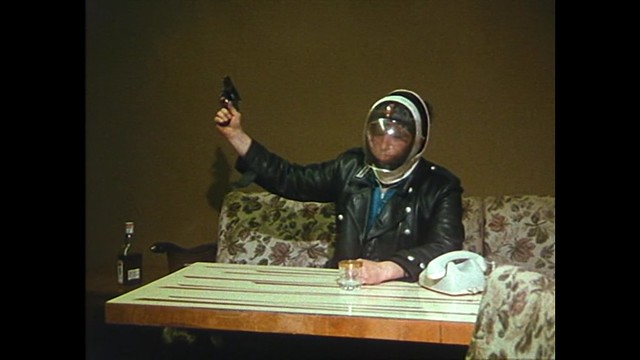 Filmed just before the dissolution of the East Germany, but came out afterward, Harun Farocki's Leben - BRD or How to Live in FRG (Federal Republic of Germany/West Germany) stands in contrast to both, the egalitarian (East) or capitalist (West) utopias that never have materialized. He knew that the West hadn't really won the Cold War game- that there was something inherently unnatural and inhuman about the advanced capitalist system in the West. Farocki strings series of 'how to' instructional videos of all kinds from all over West Germany, where people were enacting scenarios - from birth to death, intercut them with various household products - toilet seats, washers, drawers, car doors, going through rigorous and repeat stress tests.
Filmed just before the dissolution of the East Germany, but came out afterward, Harun Farocki's Leben - BRD or How to Live in FRG (Federal Republic of Germany/West Germany) stands in contrast to both, the egalitarian (East) or capitalist (West) utopias that never have materialized. He knew that the West hadn't really won the Cold War game- that there was something inherently unnatural and inhuman about the advanced capitalist system in the West. Farocki strings series of 'how to' instructional videos of all kinds from all over West Germany, where people were enacting scenarios - from birth to death, intercut them with various household products - toilet seats, washers, drawers, car doors, going through rigorous and repeat stress tests.
Schlafkrankheit/Sleeping Sickness (2011) - Köhler
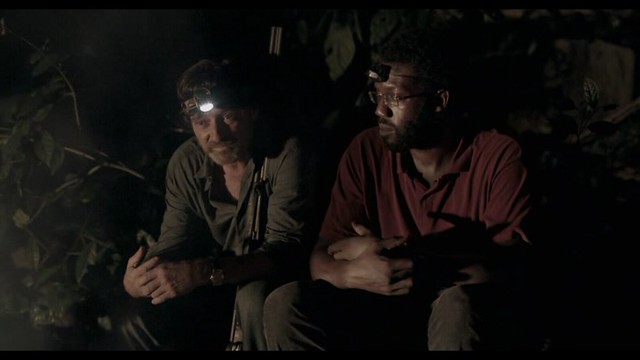 Sleeping Sickness is a complex film that says a lot about colonialism and its ugly symbiotic relationship in capitalist society. As a German directed film with a German main character, the subtext of losing one's identity in a global capitalist system and yearning for some sort of metamorphosis is quite striking.
Sleeping Sickness is a complex film that says a lot about colonialism and its ugly symbiotic relationship in capitalist society. As a German directed film with a German main character, the subtext of losing one's identity in a global capitalist system and yearning for some sort of metamorphosis is quite striking.
The Spook Who Sat by the Door (1973) - Dixon
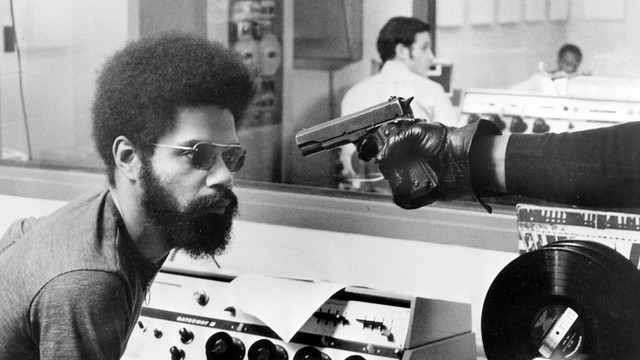 Taking advantage during the integration era, a black man named Don Freeman, patiently works up the ranks as a token black CIA agent, learning everything he could while being a model employee and in turn use all the knowledge he acquired into an urban armed guerrilla warfare in his native Chicago against authorities. By the end, the film advocates armed uprising by the disenfranchised blacks in every major city in America. A radical film by African American director Ivan Dixon and writer Sam Greenlee.
Taking advantage during the integration era, a black man named Don Freeman, patiently works up the ranks as a token black CIA agent, learning everything he could while being a model employee and in turn use all the knowledge he acquired into an urban armed guerrilla warfare in his native Chicago against authorities. By the end, the film advocates armed uprising by the disenfranchised blacks in every major city in America. A radical film by African American director Ivan Dixon and writer Sam Greenlee.
Les Trois Désastres/Three Disasters (2013) - Godard (2013) - Godard
 Before Goodbye to Language (2014), where Godard embraced 3D as another art form, he participated in 3X3D, omnibus project commissioned by EU. I won’t even mention the other two shorts by other directors because they were terrible. But The Three Disasters, is a continuation of Godard’s contemplation on art and cinema. His wordplays are strong here: des =dice, astres=stars… as if predicting Hollywood’s short romance with the medium (again) as a gamble. “Writing was necessary. Printing was gratification. Digital will be dictatorship.” He drawls in his gravelly voice. He also observes the invention of perspectives in Western art ruined having any depth in content, correlating it to 2D and 3D in cinema. It’s Invigorating 20 minutes as any of his other films.
Before Goodbye to Language (2014), where Godard embraced 3D as another art form, he participated in 3X3D, omnibus project commissioned by EU. I won’t even mention the other two shorts by other directors because they were terrible. But The Three Disasters, is a continuation of Godard’s contemplation on art and cinema. His wordplays are strong here: des =dice, astres=stars… as if predicting Hollywood’s short romance with the medium (again) as a gamble. “Writing was necessary. Printing was gratification. Digital will be dictatorship.” He drawls in his gravelly voice. He also observes the invention of perspectives in Western art ruined having any depth in content, correlating it to 2D and 3D in cinema. It’s Invigorating 20 minutes as any of his other films.
Typhoon Club (1985) - Sômai
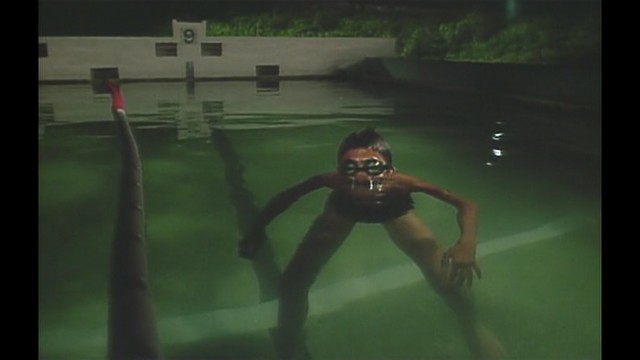 Breakfast Club it ain't. There's no highlighting their individual quirks. They instinctly understand each other and forgive one another. Mikami screams on the phone to his unhelpful drunken teacher, "I will never be like you!" In the meantime, Rie's Homerian journey home during the typhoon continues. She gets picked up by a college students while shopping in Harajuku. He invites her to his apartment. It's not as exciting as she thought. After changing back to her school uniform, she decides to come back home.
Breakfast Club it ain't. There's no highlighting their individual quirks. They instinctly understand each other and forgive one another. Mikami screams on the phone to his unhelpful drunken teacher, "I will never be like you!" In the meantime, Rie's Homerian journey home during the typhoon continues. She gets picked up by a college students while shopping in Harajuku. He invites her to his apartment. It's not as exciting as she thought. After changing back to her school uniform, she decides to come back home.
Typhoon Club predates all the 90s and 2000s Japanese teen angst films. Somai really had a great eye for small details and intricacies of human relations. It's one of the best Japanese films ever made.
Wanda (1970) - Loden
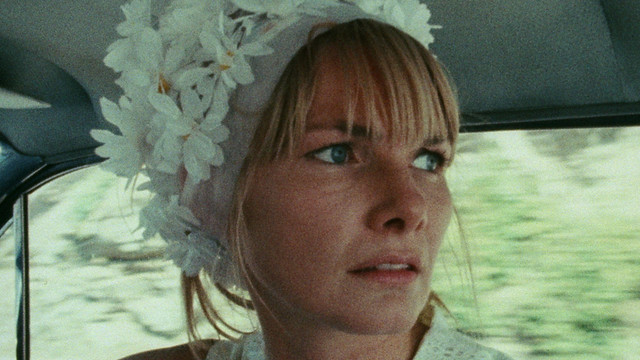 Wanda seems to be always late to the party: the divorce court, the sewing factory, at the bank robbery. It's as if she is consciously late (slow quitting). With her options in life being very limited, she seems to be holding on to her time as if it is her only resistance against the world that's expectant of her blonde female self. It's not an easy movie to like. After fighting off a rapist, she ends up in a pub where other females show her some solidarity and kindness, she still seems very lost and frightened in an unforgiving world at the end. Wanda is certainly an interesting one.
Wanda seems to be always late to the party: the divorce court, the sewing factory, at the bank robbery. It's as if she is consciously late (slow quitting). With her options in life being very limited, she seems to be holding on to her time as if it is her only resistance against the world that's expectant of her blonde female self. It's not an easy movie to like. After fighting off a rapist, she ends up in a pub where other females show her some solidarity and kindness, she still seems very lost and frightened in an unforgiving world at the end. Wanda is certainly an interesting one.
Yo, la peor de todas/I, The Worst of All (1990) - Bemberg
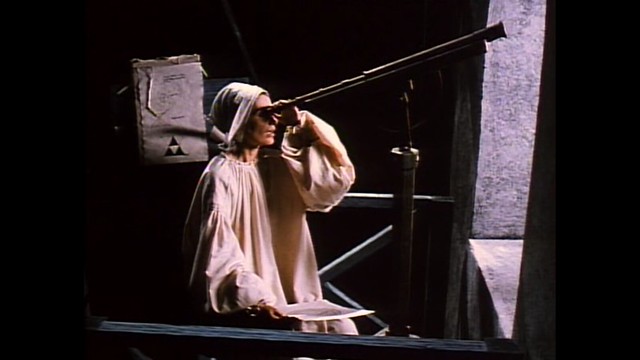 Based on a historical figure, Juana Inés de la Cruz, I, The Worst of All, tells trials and tribulations of a catholic nun who lived in the 17th Century Mexico. Sister Juana who was a poet, playwright, theologian and a philosopher. And because it was unorthodox for woman to be an inquisitive and brilliant intellectual in the age of inquisition, she was persecuted by the patriarchal church and forced to denounce her 'sins'. Maria Luisa Bemberg directs the unflinching version of Sister Juana's story. Assumpta Serna plays Sister Juana, whose brilliance was the subject of both envy and jealousy in the convent. She is afforded with a large library and fine material things, like a telescope and harpsicord within the convent walls. She makes a big impression on the viceroy sent from Spain to the new world, and strikes up the friendship with the Vicereine (played by Dominique Sanda) who feels a certain kinship with the Sister (convent/marriage = jail). The Viceroy and his wife become an ardent supporter and protector of Juana against the vicious archbishop who thinks Juana is a nothing but a harlot and heretic.
Based on a historical figure, Juana Inés de la Cruz, I, The Worst of All, tells trials and tribulations of a catholic nun who lived in the 17th Century Mexico. Sister Juana who was a poet, playwright, theologian and a philosopher. And because it was unorthodox for woman to be an inquisitive and brilliant intellectual in the age of inquisition, she was persecuted by the patriarchal church and forced to denounce her 'sins'. Maria Luisa Bemberg directs the unflinching version of Sister Juana's story. Assumpta Serna plays Sister Juana, whose brilliance was the subject of both envy and jealousy in the convent. She is afforded with a large library and fine material things, like a telescope and harpsicord within the convent walls. She makes a big impression on the viceroy sent from Spain to the new world, and strikes up the friendship with the Vicereine (played by Dominique Sanda) who feels a certain kinship with the Sister (convent/marriage = jail). The Viceroy and his wife become an ardent supporter and protector of Juana against the vicious archbishop who thinks Juana is a nothing but a harlot and heretic.
I, the Worst of All, is a searing indictment of hypocracy of the religious institution and clear eyed examination of the true devotion and worldly desires of intellect. What happened to Sister Juana is a real tragedy.